7 books to read this Oscar season before you see the movie
Prestige adaptations of great novels and nonfiction works are a staple of Oscar season, alongside inspirational true stories and that one international film you’re planning to get to at some point. (Get to it, we implore you!) With that season now fully upon us, you may find yourself wondering how the many book adaptations at the multiplex compare to their source material. Read on for a list of the books that inspired seven of this year’s biggest awards contenders, and that make worthy companion pieces to those films — and frankly, just worthy reads in their own right.
I Heard You Paint Houses, by Charles Brandt
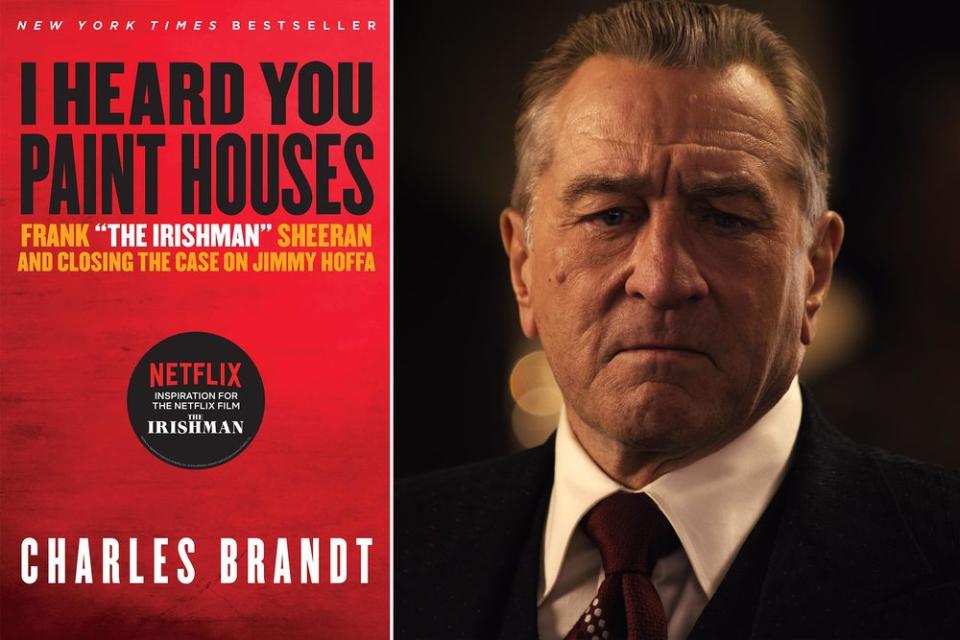
As the adage goes, never let the truth get in the way of a good story. The veracity of I Heard You Paint Houses — based on several years’ worth of interviews author Charles Brandt conducted with Frank “The Irishman” Sheeran, a Teamsters official and supposed mob hitman — has repeatedly been challenged, particularly Sheeran’s claim that he killed his longtime friend, union leader Jimmy Hoffa. (Hoffa’s 1975 disappearance famously remains unsolved.) Nevertheless, with The Irishman (hitting Netflix Nov. 27), Martin Scorsese turned Brandt’s book into a powerfully mournful memory play of a film, with Hoffa’s murder just the greatest regret among a lifetime of them for the aging Sheeran. Scorsese’s faithfully adapted film heightens the story’s elegiac qualities — no words can replicate the experience of Robert De Niro, as Sheeran, becoming a lonely, remorseful old man before your eyes — but those qualities are there in the book, which similarly conveys the sense of someone near the end of their life looking back over it. (Sheeran spoke to Brandt practically on his deathbed, and died before the book’s 2004 publication.) With its engagingly spare, straightforward prose, written mostly in Sheeran’s first-person voice, the book is also nigh-impossible to read without hearing De Niro’s raspy narration in your head.
Caging Skies, by Christine Leunens

Fair warning: Don’t come to Caging Skies expecting Jojo Rabbit. In adapting the 2004 novel, writer-director Taika Waititi kept the broad plot outline, characters’ names, and not much else, spinning a darkly tinged but ultimately quite sweet coming-of-age story out of Christine Leunens’ grim novel. (At the film’s Fantastic Fest screening, Waititi reportedly joked he only read half of the book before writing his screenplay.) Like Jojo Rabbit (in theaters now), Caging Skies is the story of avid young Nazi Johannes Betzler, who discovers his mother is hiding a Jewish girl named Elsa in their house. But in contrast to Waititi’s whimsically satirical approach, Leunens crafts a vivid, realistic portrait of Johannes’ life in the Hitler Youth and under fascist rule, and a more pointed examination of how Nazi ideology corrupted and poisoned its followers. Suffice it to say, there’s no wisecracking, imaginary-friend Hitler to be found in the book. None of this is meant to discourage anyone from reading Caging Skies — it’s an often affecting, compelling experience. Just be aware of what you’re getting yourself into.
Little Women, by Louisa May Alcott

With her iteration of Little Women (out Dec. 25), writer-director Greta Gerwig has put her own indelible stamp on Louisa May Alcott’s literary classic, a “kind of punk-rock, Shakespearean take on this story,” as producer Amy Pascal told EW. Gerwig’s film begins in the middle, so to speak, with the March sisters already young adults, and crisscrosses its way through time via extended flashbacks. But the Lady Bird director and her A-list cast have also put their own spin on the book’s beloved characters — and less beloved characters. (Florence Pugh’s Amy at last gets her turn in the spotlight and emerges with newfound depth.) If it’s not a letter-perfect adaptation — though as Gerwig points out, it’s replete with lines taken verbatim from the book — it’s true to Alcott’s spirit. For instance, Jo’s (Saoirse Ronan) passionate “I’m so sick of it!” speech, seen in the trailer, came from one of the author’s letters.
Just Mercy, by Bryan Stevenson
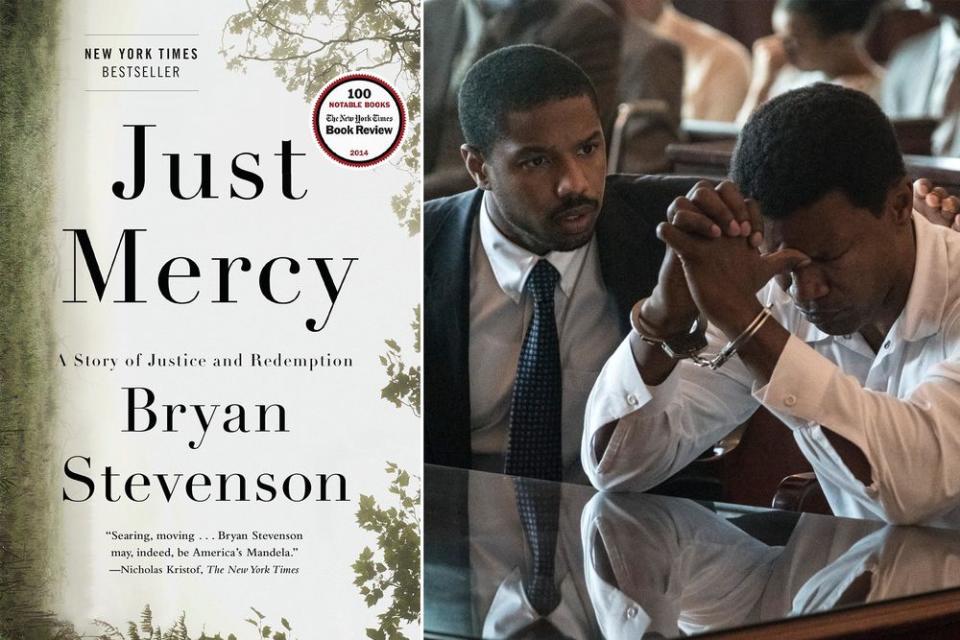
Lawyer and activist Bryan Stevenson’s memoir Just Mercy and its film adaption (out Dec. 25) have, essentially, the same twofold goal: to call attention to the inequities of America’s criminal justice system and to inspire hope that those wrongs can be righted. Both center around the case of Walter McMillian (played by Jamie Foxx), a wrongfully imprisoned Alabama man whom Stevenson (Michael B. Jordan) strives to free from death row. Stevenson has dedicated his life to fighting for social justice, and his 2014 memoir also tracks the broader sweep of his career, from arguing against life sentences and the death penalty for children to founding Alabama’s Equal Justice Initiative. It also scrutinizes the many forms of racism that continue to plague the U.S., including the biases endemic in the country’s judicial and prison systems. Stevenson bundles it all into a compulsively readable book, one that burns with a moral urgency that may well inspire readers to, as Jordan put it to EW, “go home and figure out what their ‘thing’ is. You don’t have to be some fancy, educated defense attorney to attack this issue. Each person can do something to be a part of the fight, to be a part of the change.”
Secrecy World, by Jake Bernstein
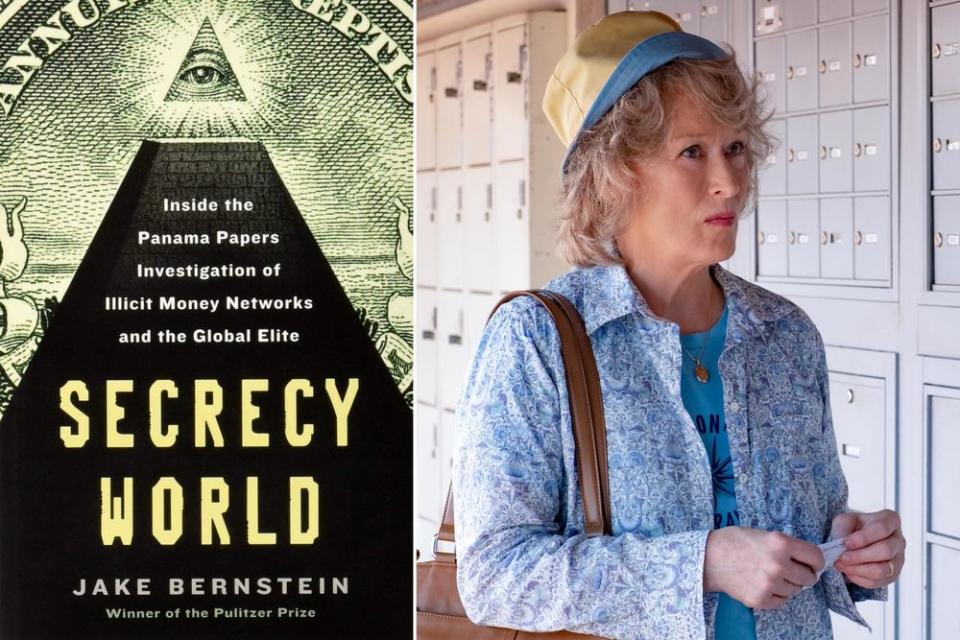
As part of the team that broke the Panama Papers story in 2016, journalist Jake Bernstein spent the better part of a year investigating it, as more than 300 journalists around the world collectively sifted through 11.5 million leaked documents. And yet: “When it was finished, I was still fascinated by the topic,” Bernstein told EW. “And there were things about the story that I hadn’t really been able to explore.” Out of that fascination came 2017’s Secrecy World, the basis for Steven Soderbergh’s film The Laundromat (now streaming on Netflix). The book delves deep into the shadowy financial network that flows throughout the globe, ripping away the curtain that the Panama Papers pulled back. Bernstein, in rich detail, tracks how law firm Mossack Fonseca helped corporations and wealthy individuals stash their vast funds in offshore accounts, along with the illicit activities of the firm’s many prominent clients and their associates. (Such names as Putin, Xi, and yes, Trump, crop up.) It’s an unfathomably complex topic, but Bernstein makes it all digestible with the practiced skill of a veteran journalist, guiding readers through a mysterious world we’re still just beginning to understand.
Motherless Brooklyn, by Jonathan Lethem
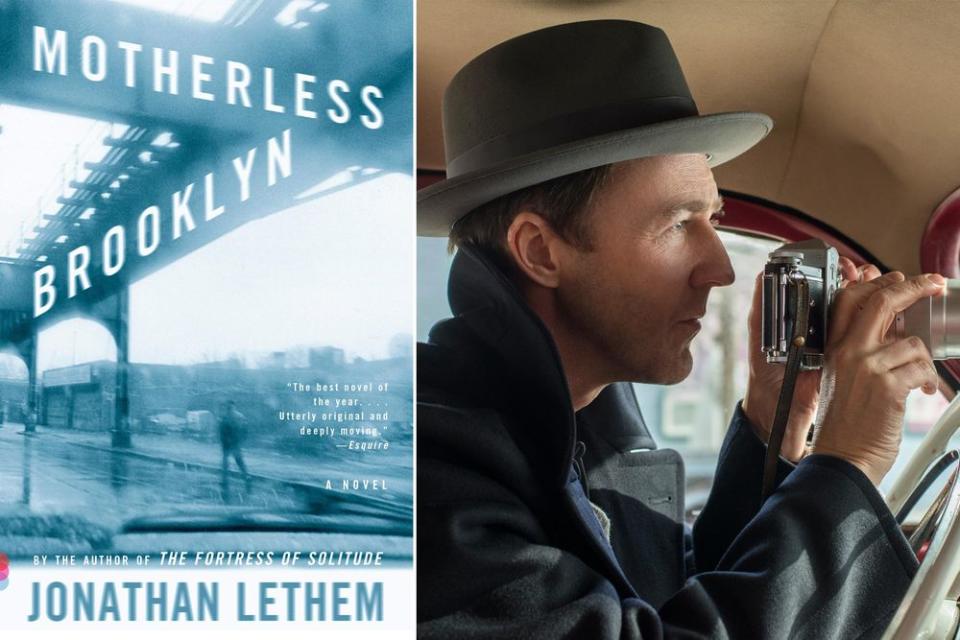
It took two decades for Edward Norton to bring Motherless Brooklyn to the screen, with the (in)famously perfectionist actor ultimately writing and directing the adaptation (now in theaters) himself. Norton substantially reworked the source material, transposing Jonathan Lethem’s 1999 (-published and -set) novel to the 1950s — a fitting change, given the hardboiled style of the book — adding a character based on notorious New York “master builder” Robert Moses (the unsubtly named Moses Randolph, played by Alec Baldwin), and, perhaps inevitably, losing most of the novel’s interiority. Protagonist Lionel Essrog, who has Tourette syndrome, narrates Lethem’s book, enveloping readers in Lionel’s physical and mental experience with the disorder. (“I breathed in sharply and swallowed the words, said nothing instead.”) And though Norton utilizes voice-over narration, he doesn’t deliver the same subjectivity — which, admittedly, is much easier to do on the page. Really, the time-shift is key to how book and film differ: Lethem’s novel is a knowingly pastiche-y take on detective fiction, while Norton offers a more openly sincere film-noir throwback.
The Good Liar, by Nicholas Searle
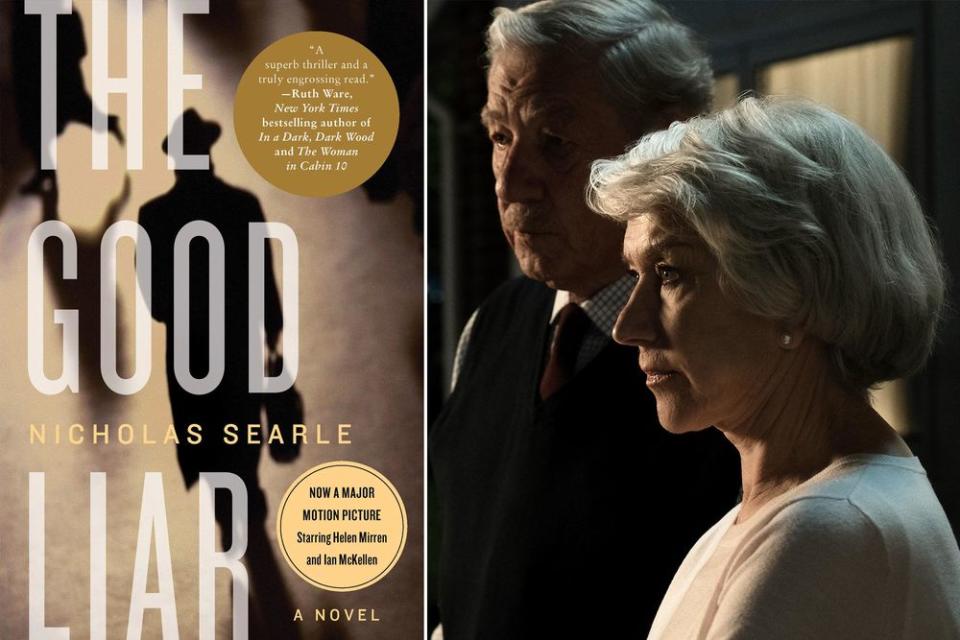
That author Nicholas Searle spent multiple decades working in British intelligence is not particularly surprising after reading his debut novel. The Good Liar, published in 2016, weaves European history and an intricately twisty con-artist narrative into a thriller that recalls John le Carré and Patricia Highsmith. Octogenarian conman Roy targets a widow named Betty, aiming to make off with her substantial savings, with frequent flashback sections steadily teasing out his mysterious backstory. If Bill Condon’s film adaptation, starring Ian McKellen and Helen Mirren, is less elegant in unspooling the narrative’s twists and turns (here, again, the difficulties of page-to-screen translation rear their collective head), the two stars perfectly embody the elegant, mannered nature of both the characters and Searle’s writing.
Related content:

